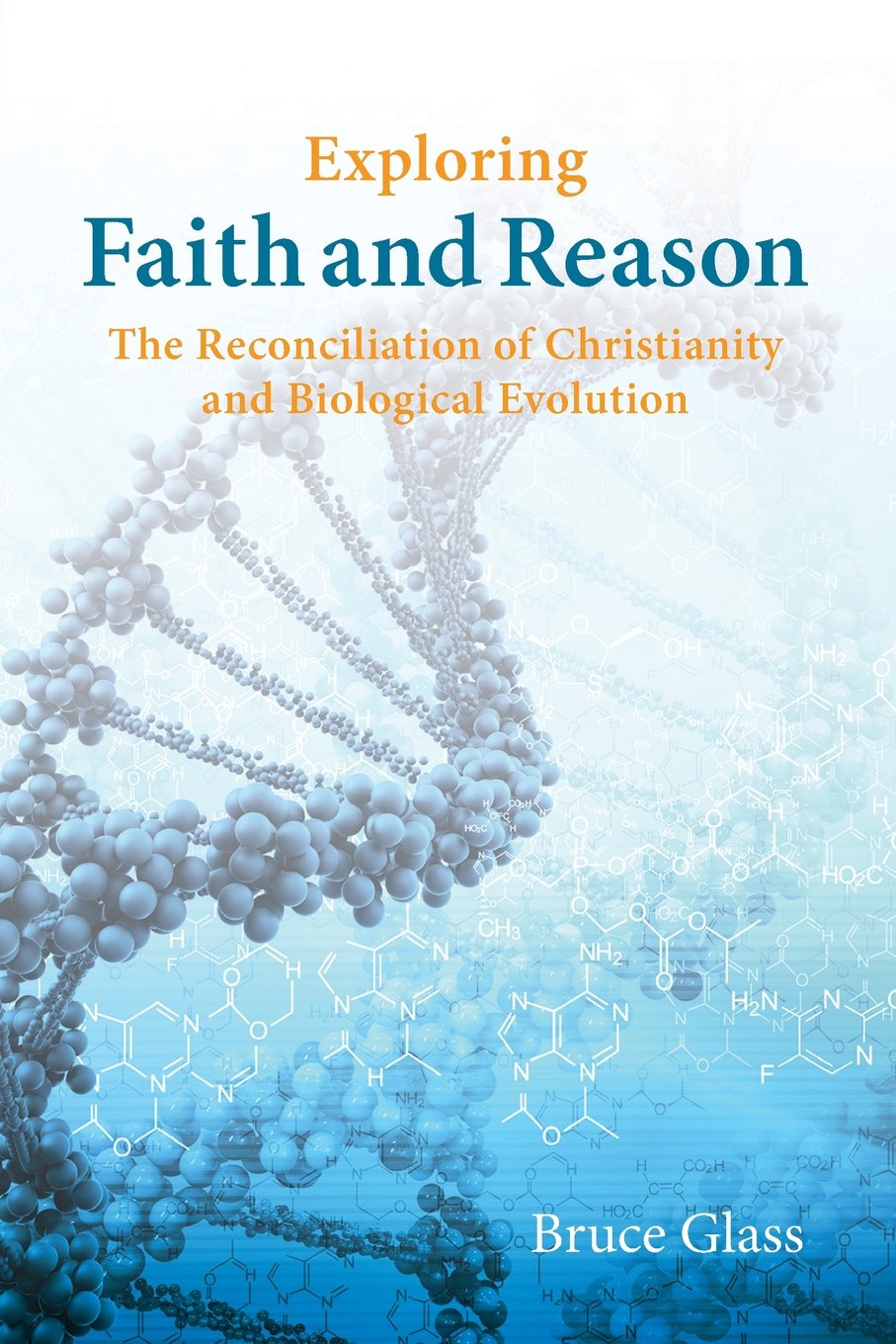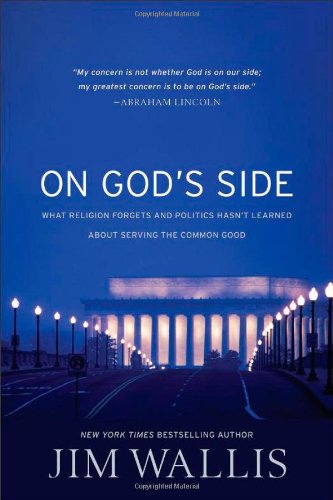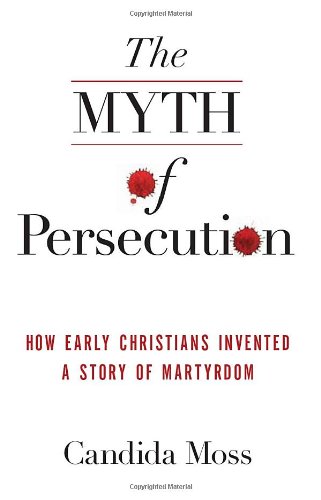Book review: The Almond Tree
by Michelle Cohen Corasanti
★★★★★
Arab-Israeli wars seem a never-ending reality, and Christian end-times interest in Palestine only escalates the conflict. Corasanti’s new novel provides insight into the grassroots tension in Palestine, without favoring one side over the other.
I’m reviewing this from the perspective of a religious blog, and from that viewpoint, Corasanti’s first book is definitely a five-star effort! I asked for a copy because my cozy little world is a long way from Jerusalem. I had hoped that my own book about Revelation might alleviate some of the tension from a Christian viewpoint, but in truth, I’m more of a history scholar than a present-day religion nerd. I was hoping this novel would grant me an inside view to the religious commitments and feelings of the two sides, explaining why it is so difficult for these two nations to come to terms, and the author did that well.
John 19:28-29, The Hyssop Reed
After this, Jesus knowing that all things were now accomplished, that the scripture might be fulfilled, saith, I thirst. Now there was set a vessel full of vinegar: and they filled a sponge with vinegar, and put it upon hyssop, and put it to his mouth.
//John’s Gospel, the one Gospel claiming an eyewitness account, provides this curious detail. When the soldiers at the cross lifted a drink to the lips of Jesus, they did so on a hyssop reed.
What makes the claim even more curious is that virtually no critical scholar believes this is historical. A hyssop reed is too spindly; it simply can’t hold the weight of a wet sponge.
Is this really eyewitness testimony? Could this be another miracle, that the reed held the weight of the sponge? Did the soldiers perhaps wrap a hyssop reed around a spear, and lift the sponge to Jesus’ lips on the tip of the spear? (You’ve probably heard that explanation.) Or is this merely a literary device of John’s, meant to draw attention to the sacrifice of Jesus?
No first-century Jew would miss the meaning of the hyssop reed. It is what the Israelites were instructed to use on the very first Passover, while they were in Egypt, to paint the blood of a lamb on their doorposts. By this sign, the “killing angel” (who had been dispatched by God to kill all the firstborn in Egypt) would know not to disturb the inhabitants of Israeli homes. Or, perhaps, the angel would be fooled by the blood into thinking the evil deed had already been done in that home.
Isaiah 6:2, The Seraphim’s Wings and Feet
Above it stood the seraphims: each one had six wings; with twain he covered his face, and with twain he covered his feet, and with twain he did fly.
//Ever wonder what a seraph looks like? Isaiah 14:29 gives this description:
[F]rom the root of that snake will spring up a viper, its fruit will be a darting, venomous serpent.
So it appears serpentine and fiery, matching this description of the seraph in Numbers 21:6:
And the LORD sent fiery serpents among the people, and they bit the people; and much people of Israel died.
Scary stuff! But if a seraph is serpentine, what’s this about it having feet? Today’s verse says it has six wings: Two to cover its eyes, two to cover its feet, and two to fly.
Well, here’s a possibility, according to some scholars. A few days back in the discussion of Ruth and Boaz, I mentioned that “feet” in the Bible is often a euphemism for genitals, and in a conversation about that post, I promised another example. So, in today’s verse, two of the Seraphim’s wings cover its “feet.” But I have to admit, the fiery image has lost most of its ferocity now, as it flies around covering its eyes and genitals.
Book review: Exploring Faith and Reason
by Bruce Glass
★★★★★
Very good book, though it wasn’t quite what I expected. Its subtitle of The Reconciliation of Christianity and Biological Evolution led me to think that Glass intended to work his way through Genesis’s creation story and explain how each verse relates to what we understand about our evolutionary history. Not so at all; nearly the entire book is an explanation of what we know about evolution and how we know it to be true. You might say its intent is to give us permission as Christians to accept scientific findings. There really should be no doubt in our minds; says Glass:
“There is certainly a great deal more to learn about how evolution works and about how it has shaped the living world throughout history, but any doubts about whether biological evolution and speciation actually occur have long been dispelled.”
God, Glass suggests, exists outside of time. Each and every moment of time in human history and indeed all the history of our physical universe—past, present, and future—occurs simultaneously from the perspective of God. So, we do ourselves no favor by trying to understand the timeline of creation from God’s perspective. We know the universe is about 13.7 billion years old, the earth itself nearly 5 billion years old, and that life began three and a half billion years ago from a common ancestor and gradually diversified into the world we share today. Humans are a relatively late emergence on the earth, but this should not disturb us at all. From God’s outside-of-time perspective, the creation simply was and is (in a sense) instantaneous.
Free to embrace the truth of our origins, Glass leads us on a short journey of what really happened over the last four billion years, drawing from the fossil record and genetics, and from the many clues we have around us in the fields of medicine, horticulture, biogeography, and more. He addresses the objections that Creationists have to the scarcity of the fossil record, first pointing out that we can’t be too demanding of the record since only about one bone in a billion becomes fossilized, and then discussing the many transitory fossil examples we do have. As it turned out, I enjoyed the real focus of the book much more than the topic I anticipated. Glass writes plainly, explaining the facts in simple terms, so that a non-biologist can understand. His awe for God’s creation shines, even as he points out that Creationism and Intelligent Design are flawed attempts to hold to a literal reading of Genesis.
Inspiring and current, highly recommended.

Exodus 15:19-21, Miriam’s Song
For the horse of Pharaoh went in with his chariots and with his horsemen into the sea, and the LORD brought again the waters of the sea upon them; but the children of Israel went on dry land in the midst of the sea. And Miriam the prophetess, the sister of Aaron, took a timbrel in her hand; and all the women went out after her with timbrels and with dances. And Miriam answered them, Sing ye to the LORD, for he hath triumphed gloriously; the horse and his rider hath he thrown into the sea.
//How do you picture God? Do you imagine him to be a heartless conqueror, reveling in the destruction of his enemies? Did God share in Miriam’s song, and glory in her praise, for the way he drowned the Egyptians in the Red Sea?
This is hardly the way we imagine our God of love today, right? Stories like this one hardly warm our hearts, for we cannot help but sympathize with our enemies. It’s what we’ve been taught to do. And so, too, did the Jews evolve in their feelings about God.
The midrash (Babylonian Talmud Megilla 10b) says that when Miriam began to sing God’s praises, the angels in heaven took up the song, but God did not join in the celebration. Searching, the angels found God weeping. When they asked why, God responded, “My creatures are drowning in the sea and you want me to sing praises?”
Matthew 27:5, Judas and Ahithophel
And he cast down the pieces of silver in the temple, and departed, and went and hanged himself.
//That was Judas. Ever notice how much the story of Jesus’ betrayal matches that of King David? Jesus appears to be the second David, and Judas the second Ahithophel (the enemy of David). Here is how the parallel lays out in the Gospel of Mark:
- Jesus knows his betrayer, Judas, just as David knew his: Ahithophel had defected.
- Jesus leads his disciples through the Kidron Valley to the Mount of Olives, precisely where David led his army.
- Peter promises loyalty to Jesus, even if he must die, just as Ittai makes that promise to King David.
- Jesus, like David, is deeply grieved but, like David, he agrees to accept God’s will.
- Jesus’ disciples are too tired to remain awake with him; Ahithophel suggests David should be attacked while weary.
- Ahithophel predicts all of David’s army will flee, leaving him to fend for himself, just as all of Jesus’ disciples fled.
Matthew and Luke copy this story from Mark into their own gospels, but at this point they deviate. What do you suppose happened to Judas? Mark and John are silent on the issue, and Luke tells us that Judas died by falling, but Matthew goes a different direction. He apparently recognizes Mark’s literary references. In the story of King David, Ahithophel hangs himself. So, in Matthew’s rendition, Judas does the same. See today’s verse.
Book review: On God’s Side
by Jim Wallis
★★★★
Has Christianity been derailed from serving the common good to mandating bipartisan stances? If Christian principles mean standing up for God, then in the myriad of complex political issues—from same-sex marriage to immigration reform—how do we know which side to take? Which side is God’s side?
Wallis asserts we can find God on the side of compassion. The common good. Throw out your gospels of self-help, personal enhancement, prosperity, and parochial nationalism, and instead look to the story of the Good Samaritan. Until Christianity returns to a “neighbor ethic,” it will not recover its credibility. To this end, Wallis writes a “biblical and theological defense of the common good.” Wallis is neither liberal nor conservative, and calls for both factions to meet in the middle.
I do confess, the title of the book gives me pause. A call to be “on God’s side,” as if the author speaks for God, evokes in my mind an image of a holy war. And to some extent, it is; Wallis sees this as war against a broken political system.
On that note, I would have preferred that the book was broken in two … one book about church, and another about state. But Wallis doesn’t separate the two. Says he, “If worth and equality are values derived from the belief that human beings are made in the image of God, then respecting both should be a primary task of democratic political systems.” He describes how in June of 2012 nearly 150 evangelical leaders banded together and signed the “Evangelical Statement of Principles for Immigration Reform.” Sojourners stood side by side in Washington D.C. with the Southern Baptists and Focus on the Family to draw attention to the plight of millions who have been caught up in our broken immigration system. These issues were seen as “fundamental moral issues and biblical imperatives.” The president listened and acted. Mission accomplished.
Problem is, I’m not sure Wallis grasps that our democratic system will be no less broken if it caves under the weight of organized religion. Nevertheless, if you are able to separate church and state in your mind as you read– learning about seeking the common good according to the example of Jesus, and learning also of our needed political reform–then you will find thought-provoking conversation on both fronts.
Before you read the book you might want to read Matthew 25:31-46.

Matthew 5:22, Angry Without Cause
But I say unto you, That whosoever is angry with his brother without a cause shall be in danger of the judgment.
//So says this verse in the King James Version of the Bible. If your anger is without cause, you’re treading in dangerous water.
But this may not be what Jesus said. “Without a cause” is an add-on to the scripture, probably by some copyist trying to tone down Jesus’ teachings, at least according to some scholars.
The truth is, some early manuscripts say “without a cause” and some don’t. Most recent translations leave the phrase out, and reference in a footnote that it exists in some early writings.
So, it boils down to what you think Jesus would have said. My gut tells me to play it safe: If you are angry with your brother at all, for any reason, then, according to Jesus’ sermon on the mount, you should recognize that you are not right with God. Leave your offering at the altar and first be reconciled with your brother. Then you may enter the presence of God.
John 6:21, Did Jesus Walk On Water?
Then they were willing to take him into the boat, and immediately the boat reached the shore where they were heading.
//Did Jesus really walk on water? One of the four gospels, the one claiming eye-witness testimony, is ambiguous on the topic. Today’s verse can be read one of two ways: Either they took him into the boat, and immediately found themselves at land, or as they began to receive Jesus into the boat, they hit land.
Context helps, so let’s back up two verses to this one:
When they had rowed three or three and a half miles, they saw Jesus approaching the boat, walking on the water; and they were terrified. –John 6:19
Sounds clear, doesn’t it? The problem is, the Greek word used for “on the water” is precisely the same word used in verse 21:1, where it is more precisely translated “by the sea”:
Afterward Jesus appeared again to his disciples, by the Sea of Tiberias. –John 21:1
Book review: The Myth of Persecution
by Candida Moss
★★★★★
Are the stories of Christian persecution during Christianity’s early years really true? Or should we recognize them as apologetic exaggeration?
Candida Moss takes a hard look at how such stories are derived, and she has high standards for what counts as persecution. Execution for merely refusing to recant one’s Christian beliefs doesn’t measure up (prosecution is not persecution, any more than prejudice is persecution). Yet she makes her point strongly that widespread, repeated persecution of Christians before the time of Constantine is no more than a myth.
There is much at stake in this discussion, because it is a common apologetic tactic to claim “proof” of Jesus’ resurrection by referring to his followers’ willingness to die for their beliefs. But what if this willingness to sacrifice for one’s principles, in the few cases where it is genuine, differs little from the principles of many other philosophers of the day? Socrates, for example, was equally willing to die for his principles.
Moss writes with intelligence and deep research as she presents her case that Christian martyrdom stories are distorted by their chroniclers, often presented with unsubtle motives. Eusibus, who played a key role in defining orthodoxy, very effectively employed martyrdom stories to further his own theological agendas.
But is there an even darker side to exaggerating the stories of our martyrs? Does an over-admiration for martyrdom promote an us-versus-them atmosphere that encourages polarization? More than a rhetorical question, Moss fears that overplaying martyrdom does Christianity a disservice. It leads us to believe persecution (perceived or real) is evidence of God’s approval. Evidence that we are the chosen ones. Maybe we should quit playing our martyr cards and instead pay a little more attention why Christians were so despised. Moss pulls no punches as she explains why Christians didn’t fit in with either Gentile or Jew.
I remember growing up with 1 Peter 4:12 in mind: “Beloved, think it not strange concerning the fiery trial which is to try you, as though some strange thing happened unto you.” Are we as Christians supposed to ignore such advice? Perhaps Moss was never teased as a child for professing Christian beliefs. Perhaps she’s simply telling us it’s time to grow up. Perhaps she’s insinuating that the reward isn’t worth the suffering. Whatever your personal experience in “carrying your cross” and “suffering for Christ,” you can bet this controversial book will provoke emotions. Moss writes bluntly, unafraid to step on a few toes. But maybe it is time to grow up.


















 354 Circles
354 Circles
 603 Goodreads Friends & Fans
603 Goodreads Friends & Fans

 Hello! I'm an author, historical Jesus scholar, book reviewer, and liberal Christian, which means I appreciate and attempt to exercise the humanitarian teachings of Jesus without getting hung up on any particular supernatural or religious beliefs.
The Bible is a magnificent book that has inspired and spiritually fed generations for thousands of years, and each new century seems to bring a deeper understanding of life’s purpose. This is true of not only Christianity; through the years, our age-old religions are slowly transforming from superstitious rituals into humanitarian philosophies. In short, we are growing up, and I am thrilled to be riding the wave.
I avidly read all thought-provoking religion titles. New authors: I'd love to read and review your book!
Hello! I'm an author, historical Jesus scholar, book reviewer, and liberal Christian, which means I appreciate and attempt to exercise the humanitarian teachings of Jesus without getting hung up on any particular supernatural or religious beliefs.
The Bible is a magnificent book that has inspired and spiritually fed generations for thousands of years, and each new century seems to bring a deeper understanding of life’s purpose. This is true of not only Christianity; through the years, our age-old religions are slowly transforming from superstitious rituals into humanitarian philosophies. In short, we are growing up, and I am thrilled to be riding the wave.
I avidly read all thought-provoking religion titles. New authors: I'd love to read and review your book!
 Hi! While Lee writes the articles and reviews the books, I edit, organize, and maintain the blog. The views expressed here are Lee's but I'm his biggest supporter! :-)
Hi! While Lee writes the articles and reviews the books, I edit, organize, and maintain the blog. The views expressed here are Lee's but I'm his biggest supporter! :-)
Connect With Me!